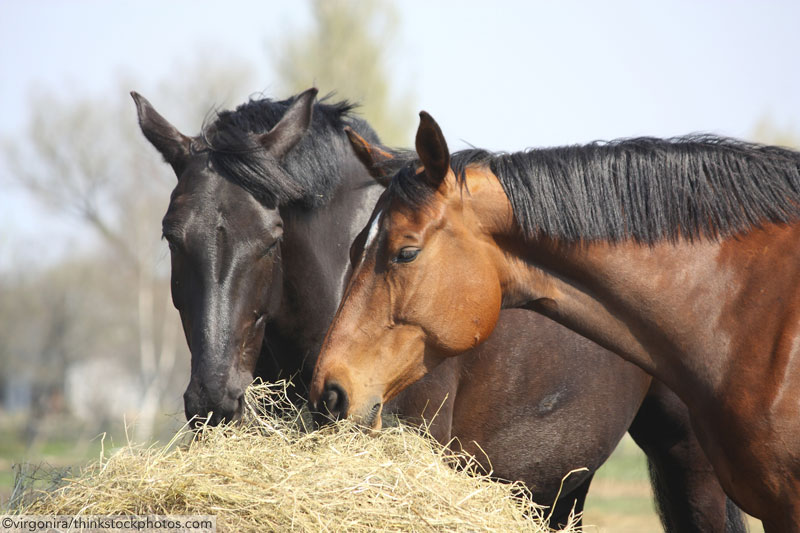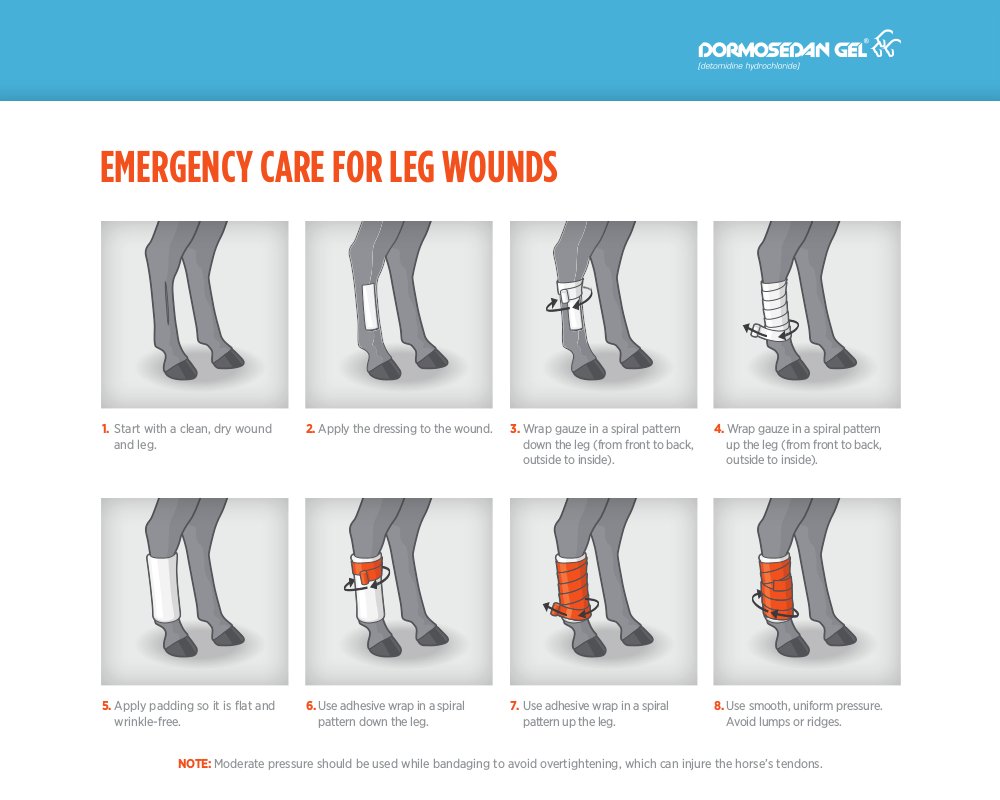The circulars and catalogs a la equine slide through the mail chute. Unable to resist the latest horse thing, you eagerly open the first pamphlet. “Got a Poor Doer?” the glossy color brochure asks. “Feed Him Our Newest Supplement — Fat Albert. Our studies show that most horses are lacking in the very important mineral blankety-blank and vitamin bloopity-bloop which halts irregular stoppage. In order to have a healthy, happy animal, he must have in his diet the very important tincture of this and that…”
You cast a guilty glance over to the framed photo of your beautiful Thoroughbred gelding, Jumpin’ Jimmy. Maybe he is a “poor doer,” you think, leafing through another catalog that boasts the best in equine nutrition. “Maybe he’s really a ticking time bomb of malnutrition. But how do I know? Which supplement do I choose?”
Deciding whether your horse needs a supplement — and which one — can be a daunting task. Visit any tack store or check out any horse-care catalog and you’ll see an almost unlimited choice of little buckets and bottles full of products designed to enhance your feeding program.
After all, vitamins and minerals are essential for proper health, growth and maturity, and they provide coenzymes that are necessary for metabolism. A diet lacking in these essentials can lead to severe health problems, and nutritional supplements can be an important piece of the puzzle that make up your horse’s nutrition picture.
While your horse can often obtain most of his vitamins through his normal feed ration, sometimes hay is lacking in specific minerals or vitamins, and grain may skew the important mineral ratios or boost a horse’s energy too much. Supplements can help balance the dinner plate.
Dr. Paul McClellan of San Dieguito Equine Group in Rancho Santa Fe, California, is the top-notch veterinarian responsible for keeping Guenter Seidel’s Olympic partner Graf George in the pink of health. He offers his knowledge to help you understand nutrition supplements.
Nutrition 101
It’s a good idea to have a firm grasp on nutrition basics before you rush out and blindly buy a supplement. This means that first you should examine your basic feeding regimen. While a full discussion on general nutrition is beyond the scope of the article (it’s the subject of many volumes and textbooks), feeds are basically divided into these categories: roughage, concentrates and supplements.
Roughage includes all the hays; concentrates are the grain products; and nutrition supplements are the vitamins, minerals, salt and probiotics. Equine nutrition supplements generally come as a powder to be sprinkled over or mixed in grain, or as an extruded pelleted feed, or sometimes as a liquid to be poured over feed.
Before dressing your horse’s meals with supplements, however, you need to evaluate his hay and grain intake as well as his particular energy demands. “Don’t supplement without defining a specific need for it,” says Dr. McClellan. Feeding too many supplements is a waste of money and, more importantly, can decrease the uptake of certain essential minerals. Too much zinc, for instance, can interfere with the body’s use of other vitamins. Calcium and phosphorous need to maintain a specific ratio, or bone problems could develop. If you offer your horse two or three supplements that contain calcium, but only one that has phosphorous, you could upset the balance. This is especially important for young horses, whose bones are still forming.
A horse’s diet should contain the requirements for energy. Often that can be evaluated clinically by the appearance of the horse, then adjusting the amount of roughage and concentrate for the horse. There also are computer programs available that can evaluate the amount and ratio of protein, fat and carbohydrates for a particular horse’s work and age category. “Your veterinarian is best equipped to evaluate your horse’s weight, energy, disposition and appearance (to determine if his needs are being met) because he sees so many horses,” says Dr. McClellan.
Because the nutritional needs of horses vary by — among other things — work and geographic region, there isn’t one specific product or recipe to recommend for all horses. For example, selenium, a trace mineral that aids in building tissues, is inherent in the soil in the western mountain states. Horses grazing or eating hay grown in this region are often troubled by excess selenium. If you live in this area and feed your horse a supplement that contains additional selenium, you could give your horse a toxic overdose. However, coastal and glacial areas don’t have enough selenium in the soil, and your horse may need supplementation of this mineral.
Also, the casual weekend trail horse doesn’t have the same energy needs as a competing three-day event horse, so he may not need any extra calories from a weight-building or energy-boosting supplement.
For more information on general equine nutrition, consider reading books on the subject, such as Understanding Equine Nutrition, by Karen Briggs (The Blood-Horse Inc.) or Beyond the Hay Days, A Refreshingly Simple Guide To Effective Horse Nutrition, by Rex A. Ewing (PixyJack Press). Once you understand the basics, you can better determine where your horse’s diet may be lacking. You can ask the feed store or hay supplier about their product, but if you’re not satisfied you can send a sample of your horse’s hay for laboratory analysis to your county extension agent. They can give you an idea of any mineral and vitamin deficiencies or excesses you’ll have to compensate for with a supplement.
| Ingredients List: What Do All Those Words Mean? Alfalfa: High in protein roughage (16-18 percent), full of amino acids, chlorophyll and betacarotene. Antioxidants: Name for a group of vitamins and minerals that control free radicals, which are the normal byproducts of cellular metabolism. Studies say that free radicals may contribute to cancer and heart disease. Examples of anti-oxidants are vitamins C and E, betacarotene, selenium and lipoic acid. B-Complex Vitamins: Protein builders required for normal cellular metabolism. Biotin: (Also known as vitamin H) Naturally present in grass, biotin helps build strong hooves. Blackstrap molasses: Made of sugar beets, this pure sugar is full of iron, calcium and potassium. Chelated Minerals: (Iron, copper, magnesium, cobalt, zinc and magnesium) Essential for maintaining red blood cells, nervous system function and protein metabolism. Chelation is a process that presumably improves absorption of minerals. Copper: (Trace mineral) Helps build red blood cells. Essential Fatty Acids (EFA): Aids healthy cell functions; improves skin and cell membranes; increases oxygen consumption, energy and metabolism; increases kidney, nerve and immune system functions. EFAs are considered beneficial fats. Flax Seed: Good source of essential fatty acids, great for putting the bloom on coats. Folic Acid: Helps maintain red blood cells. Garlic: Reported to be a natural antibiotic, but not proven. |
Why Supplement?
“There are several reasons why you may need to use a supplement,” says Dr. McClellan. “If the horse has a chronic disease process, such as hypothyroidism, sometimes supplements help control it.” Horses that are on long-term medications may also need supplements to counteract the side effects of medications. Equine protozoal myeloencephalitis (EPM) for example, is one disease that requires long-term use of medications (trimethoprim sulfa and pyrimethamine), which can affect the metabolism of red blood cells. Supplementation of folic acid is needed to counterbalance this action.
Supplementation also may be necessary if for some reason the horse is on a grass-hay-only diet, which may be all that is available locally or which might happen if he has an allergy to alfalfa or he can’t tolerate a different feed. In this case, calcium (which is abundant in alfalfa) may need to be supplemented. Foals with epiphysitis can be supplemented with calcium or phosphorous to improve the ratio. Also, hay grown in nutrient-weak soils may be deficient in other essentials.
Athletes in heavy work may also need something beyond the normal equine forage and grain meals and might benefit from nutrition supplements. If a horse is working very hard and/or has a need for extra calories but cannot consume enough of the necessary roughage and concentrates, supplementing with fat — in oil base or rice bran — can make up their dietary requirements for energy and calories,” says Dr. McClellan.
While sometimes a horse that just won’t gain weight may have a medical condition, such as stomach ulcers, that must be dealt with by a vet, sometimes it’s just a matter of an overefficient metabolism. Such a horse can benefit from a high-fat diet (not chocolate chip cookies!). Or a horse with digestion problems may be helped by bacterial cultures known as “direct fed microbials” or “probiotics” (see Ingredients List).
Working Signs
So you’ve analyzed your horse’s diet, decided he needs a boost and plunked down your money for the equine version of One-A-Day vitamins. How can you tell if the supplement is working?
“Preventive medicine is always the most difficult thing to ascertain,” says Dr. McClellan. And basically, that is what you are doing feeding to prevent disease, weight loss and loss of condition. You’re doing everything possible to maintain his top condition. Dr. McClellan’s rule of thumb is that if you choose to use a supplement or change a concentrate, you should give it 30 days and re-evaluate the horse’s appearance, how he’s going and how he feels.
If you don’t see a dramatic difference — or at least a measurable difference — then the supplement is probably not necessary. However, you may feed products that give no obvious results on the outside but are working internally, so it’s a bit of a gamble — more reason to feed only with professional guidance.
“It’s OK to stop and start feeding most supplements as needed without having any digestion difficulties. Just don’t combine supplements unless your vet advises you to do so,” says Dr. McClellan. Supplements containing protein should be added and taken away gradually, over two to three days, to avoid upsetting your horse’s digestive system.
“Nutrition is a dynamic process and it’s very difficult to have one feed program for an individual horse for his entire useful life,” says Dr. McClellan. “You have to be able to make adjustments depending on the horse’s work, his environment, his age and any injury.” Also, vitamins cannot replace food — they augment a healthy ration.
So with a little planning on your part, you can put back the bloom on your horse’s coat, build up those Arnold-muscles, rev up his sluggish attitude and help his hooves grow like Jack’s beanstalk. Just be prepared to reevaluate his diet if he starts looking like a sumo wrestler or acting like he’s the reincarnation of Secretariat — or if he starts fading again.
Read more
HorseChannel’s Guide to Supplements






I only had horses for about a year and a half and for the past year I decided to stop giving grain all together and give this: hay, supplements and a soaked mix of alfalfa,oats and beet pulp. Not only my mares haven’t had any problems, everybody says that my horses look much better and their hoofs look incredible!